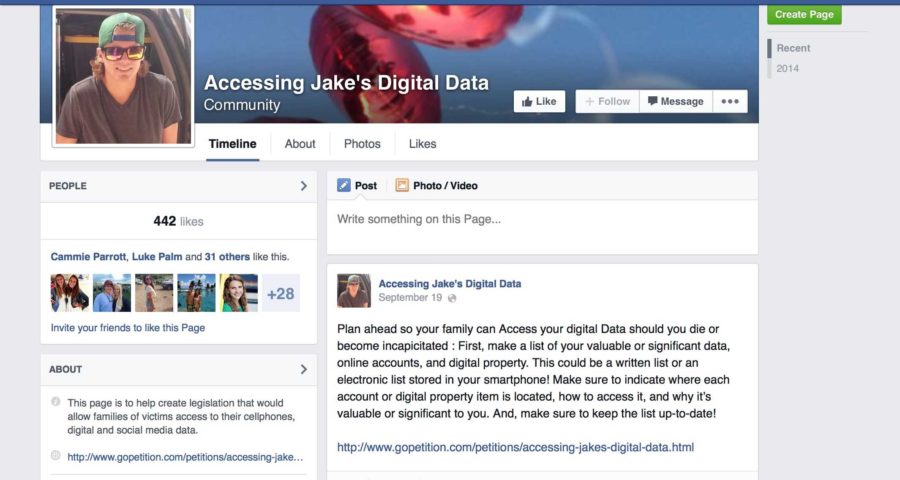Accessing Jake’s Digital Data
Dec. 15, 2013 was a sad day in the Orono community. Jake Anderson, an Orono graduate and a member of the Pi Kappa Alpha fraternity at the University of Minnesota, had fallen and passed away. The Anderson family was devastated and after all they went through they still could not receive access to Jake’s cell phone.
The Stored Communications Act (SCA) is a law that addresses voluntary and compelled disclosure of “stored wire and electronic communications and transactional records” held by third-party internet service providers (ISPs). The Fourth Amendment to the U.S. Constitution protects the people’s right “to be secure in their persons, houses, papers, and effects, against unreasonable searches and seizure”. However, when applied to information stored online, the Fourth Amendment’s protections are potentially far weaker. In part, this is because the Fourth Amendment defines the “right to be secure” in spatial terms that do not directly apply to the “reasonable expectation of privacy” in an online context.
While a search warrant and probable cause are required to search one’s home, under the third party doctrine only a subpoena and prior notice (a much lower hurdle than probable cause) are needed to compel an ISP to disclose the contents of an email or of files stored on a server. The SCA creates Fourth Amendment-like privacy protection for email and other digital communications stored on the internet. In addition, it limits the ability of commercial ISPs to reveal content information to non government entities.
“Believe it or not, this phone is in my name. The account is in my name. I let Jake Anderson use the phone. Sprint, Apple and state of Minnesota say I cannot get it unlocked without a subpoena. To get a subpoena there needs to be an open case. The case was open and shut 2 weeks after Jake’s passing with minimal effort to investigate,” Bill Anderson, Jake’s dad, published to the ‘Accessing Jake’s Digital Data’ Facebook page.
Jake’s mom, Kristi Anderson, decided to do something about this. “Not only do I want access to the cell phone to see if there are clues to what happened that night, but also I want the pictures, texts, and memories that are on Jake’s phone,” Anderson said.
Anderson then decided she wanted to do something about this. She started by creating a petition that states “We, the undersigned, support the need for legislation to allow a personal representative of the deceased, access to (but not control of) the deceased individual’s social media, digital, and cell phone data.” Appearing on almost every local news station, this petition Anderson created really got the word out about this law and what the Anderson family went through. “I want to educate people about this law. It affects so many people that have had loved ones pass away, and even people in the future that might go through this,” Anderson said.
Anderson believes that people who want someone to have access to their cell phone and social media after their death should be able to. She thinks that before students enter college they should be able to fill out a form, or not, saying who would have access to their digital data if something should ever happen to them.
The petition, so far, has around 4,000 signatures. There is no set amount for how many signatures the Anderson family wants to get; they just wanted to show lawmakers that people actually do care about this problem and want it to be fixed.
If anyone is interested in signing the petition it can be found here: http://www.gopetition.com/petitions/accessing-jakes-digital-data.html

















































